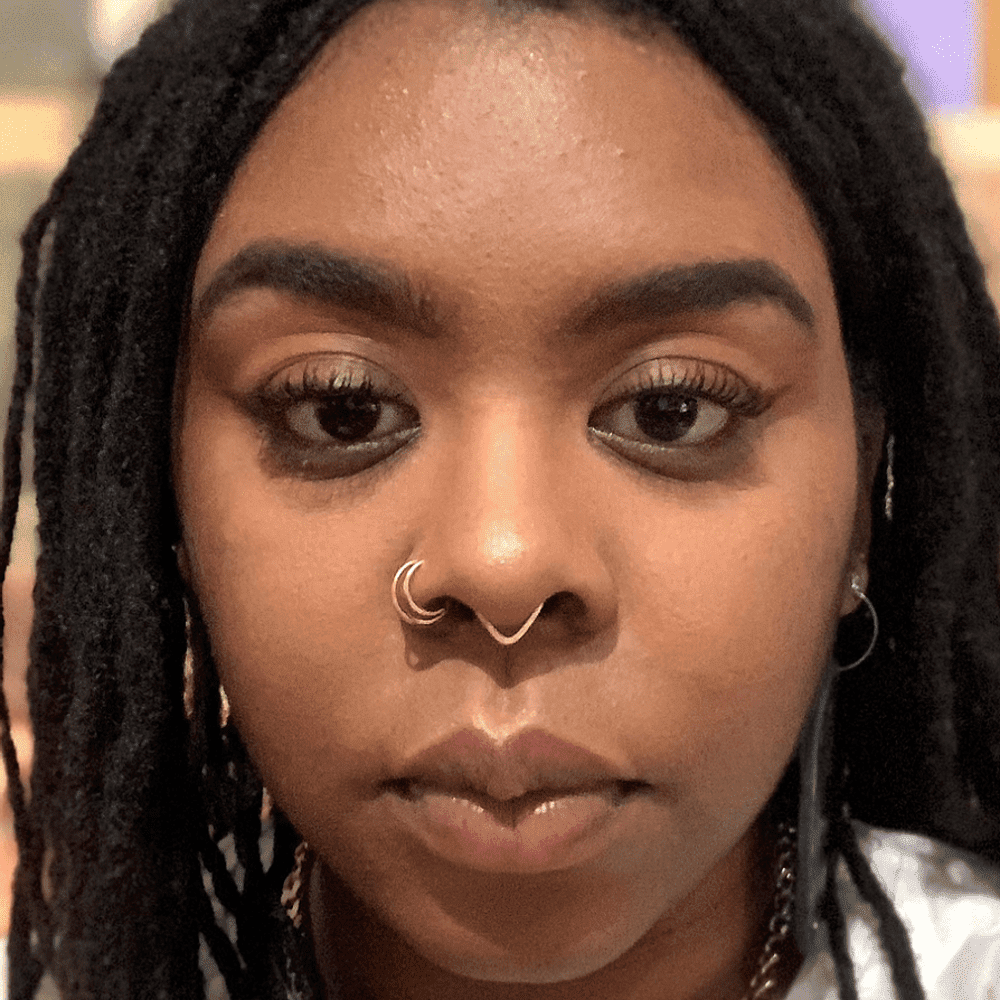Ava DuVernay’s ARRAY 101: A Social Justice Education Platform
- Ava DuVernay created ARRAY 101 to educate students on issues with social impacts.
- ARRAY 101 uses DuVernay’s collection of film and TV shows to teach social justice issues.
- Learning guides help you connect social justice learnings with your lived experiences.
- Lessons and field studies based on six different films and TV shows help you learn.
Ava DuVernay’s production company launched an education project called ARRAY 101 in 2020. It supports student learning of social justice issues. Using content from her production company, Duvernay connects movie and television viewing with educational opportunities both in and out of the classroom.
As part of ARRAY 101’s founding team members, Tammy Garnes has a unique view and understanding of the organization. Garnes, ARRAY 101’s Vice President of Education and Understanding, shared that “with ARRAY 101, Ava’s desire was to take the media that she had created and create study guides to go along with it.”
DuVernay rooted ARRAY 101’s content in her productions like “Selma,” “13th,” and “Queen Sugar.” ARRAY 101’s site offers learning guides that align viewing with lessons to deepen your understanding.
“Sometimes I think about ARRAY 101 as being that kitchen table conversation that anyone can have,” Garnes shares. ” You don’t need to have permission from anyone to use these materials.”
“You don’t need anybody to sign off on you using these materials because they’re not necessarily made to be used just in a classroom. You can use them at home. You can use them anywhere you want to,” she states.
For college students, ARRAY 101 provides a foundation for understanding critical social justice themes. The site guides you through connecting each production to real-world scenarios.
What Is ARRAY 101?
ARRAY 101 is a part of DuVernay’s nonprofit, ARRAY Alliance. “We are a media collective, rooted in social justice and equity,” states Garnes. “Everything that we do comes through that lens, including our educational materials.”
ARRAY consists of multiple initiatives that uplift film, production, creativity, and education. The platform uses original content to create learning guides on social justice themes.
With ARRAY 101, “Ava’s dream and desire was to take the regular way of doing media education and kind of turn it on its head,” Garnes shares.
ARRAY 101 launched in May 2020. It uses film and television as its foundation. ARRAY 101 engages students in social justice learning that doesn’t always happen in traditional classrooms through lessons, activities, and field studies.
“We wanted to give you some things to hang onto, some questions to ask yourself and others, some things to just explore,” Garnes offers. “I think this will give students some agency over what they consume and learn and a safe place that they can trust.”
You can dig into lessons, activities, and field studies around themes like resistance, stereotypes, protesting, and inequity. Guiding questions and summaries further your engagement with social needs and nationwide injustices. ARRAY 101’s field studies act as an experiential learning tool that connects online learning with real-life scenarios.
“Break down those barriers of people giving us permission to talk about history and things that are real,” Garnes expresses. “I hope ARRAY 101 gives people the opportunity to know that they can study and write and think about anything they want to without anyone’s permission.”
ARRAY 101 for College Students
As a college student, you can create individual learning paths with ARRAY 101’s guides. Independent learning, a sort of changemaker of modern education, gives you the freedom to learn at your own pace and integrate TV and film as educational tools.
“This is something that can be done if you’re in college with your club or group or sorority or fraternity,” says Garnes. “This is something that can be done in the classroom at your high school.”
If you dive into ARRAY 101’s learning guides, you can then bring learnings and resources to your teachers and professors. With these resources, Garnes notes, “they may or may not add it to the class today, but at ARRAY 101 we’re trying to help you become a steward for your community with these lessons.”
“All of our guides are written with the help of historians and classroom teachers, so the information is true and fact-checked and free. It doesn’t get any better than that,” Garnes reports.
“We write with young people in mind,” she goes on. “We’re not writing something that’s some scholarly journal. We use all the proper terms and vocabulary, but we give it to you in a way that we hope you can embrace and understand and share.”
ARRAY 101 provides a context for today’s issues and challenges through a historical lens. “There are things happening right now that are directly impacting students and will have long-lasting impacts when it comes to their health, their mental wellness, [and] their political and voting rights,” Garnes lays out.
ARRAY 101’s catalog of primary resources like newspaper articles, census reports, and wills provides you with the details required to truly understand historical situations.
“I think students right now want desperately to know more,” Garnes rightfully notes. “I’ve never seen a time in my lifetime where young people are this hungry for information.”
“A tool like ARRAY 101 allows students to take control over their learning and not have to wait on anyone to give them permission to find that information and they can share that information with others and know that it’s true and factual.”
Learning Through Film and TV
ARRAY101 has six learning guides based on Duvernay’s movie and television productions. Some of the most notable themes within the learning guides include race, identity, equity and power, representation, resistance, and community.
“We all have the power to be a part of history, as well as witness history,” Garnes declares. “And hopefully in the lessons we’re really giving people power and agency to know that they can impact their communities in ways that they may have never thought of, all based around seeing a film or TV show.”
One important takeaway from Garnes is the truth that, “students are the voice of the movements. It all starts with young people saying they’re not gonna take ‘fill in the blank’ anymore.”
DuVernay’s creations speak directly to social injustices happening nationwide and throughout different periods in history. “Selma” and “Sankofa” take us back in time to rediscover the challenges of resistance and protest.
“Colin in Black and White” and “They’ve Gotta Have Us” tell stories about barrier-breaking individuals and the communities that uplifted them. “When They See Us” and “Queen Sugar” speak to more modern depictions of racial and social injustices.
With each of these films and television shows, ARRAY 101 provides tools for you to deeply engage with critical topics. As Garnes notes, one goal for ARRAY 101 is to provide a space of learning where students “don’t feel lost and have something tangible they can hold onto and activate on.”
DuVernay’s work tells stories of the lived experiences in Black and African American communities not often depicted in mainstream productions. These essential stories improve our collective understanding and enhance our ability to create positive change.
With that knowledge, Garnes lays out that “these are really robust websites. They’re layered with so much information, and we do that on purpose, not to overwhelm but really so that everyone has an entry point.”
Selma
“Selma” tells the story of prominent civil rights leaders and supporters in 1965 Alabama. Bloody Sunday is portrayed in the film, along with the moments leading up to and shortly thereafter. Selma’s learning companion covers themes of equality and equity, resistance and persuasion, and protest and power.
Lesson One: I Voted
Lesson Two: The Art of Persuasion
Lesson Three: Anatomy of a Protest
Field Study: Gerrymandering in 2023?
Colin in Black and White
Colin Kaepernick, former NFL star, is the central focus of this TV series. His story invites you to change the systems and institutions that comprise individuals. The learning companion for “Colin in Black and White” examines themes of equity and power, coded language, and identity.
Lesson One: Black Lives and Black Beauty
Lesson Two: Black Codes and ZIP Codes
Lesson Three: Get Up. Stand Up. Take a Knee.
When They See Us
Telling the true story of the incarceration of five wrongfully accused teenagers, “When They See Us” explores the power and bias of the criminal justice system and its impact on Black communities. The four-part series and learning guide for “When They See Us” focuses on themes of criminalization and justice, power, and rights.
Lesson One: Rights, Power, and Humanity
Lesson Two: Criminalization and Inequity
Lesson Three: Positionality and Humanity
Lesson Four: Criminalization and Justice
Field Study: Fair and Balanced? Media Bias and Data Analysis
Queen Sugar
The seven-season drama “Queen Sugar” tells stories of Black America through the lens of a family in New Orleans. “Queen Sugar’s” learning guide showcases a timeline through American history, highlighting its central themes of identity, enslavement, entrepreneurship, and gentrification.
Lesson One: Black Legacy of the Land
Lesson Two: City of Protest
Lesson Three: Honor the Ancestors and Their Ways
Lesson Four: Until Everybody’s Free
Extended Lesson: What Are Little Boys Made Of
They’ve Gotta Have Us
This 2018 miniseries highlights Black actors and filmmakers who broke barriers in film and cinema. Each episode tells stories of Black people in the feature film industry from the 1950s to the present day. The learning guide for “They’ve Gotta Have Us” includes themes of representation, agency, and power.
Lesson One: That’s Not Me — Understanding Archetypes and Stereotypes
Lesson Two: Power to the People — Practicing Perspective in Media
Lesson Three: Build Your Own Table — Ownership as a Tool of Resistance
Sankofa
“Sankofa” tells the story of Mona, a Black fashion model on a spiritual journey into her past. The word Sankofa comes from the Akan people of Ghana, meaning to go back into your past and bring learnings into the present. “Sankofa’s” learning guide offers themes of genealogy, resistance, and oral history.
Lesson One: Community
Lesson Two: Reclamation
Lesson Three: Resistance
Lesson Four: Liberated Territory
The Future of ARRAY 101
DuVernay provides learners of all kinds the power to take education and run in any direction they like. Garnes sees ARRAY 101 as a place where “we provide you the materials to remind you of the power you have.”
Garnes sees ARRAY 101 continuing to expand for everyone in the future. “I truly imagine that people who teach, that can be anyone, and people who want to learn, that should be everyone, to access information in a way that they can understand it, that makes them comfortable, and makes them feel powerful.”
ARRAY 101 is a powerful tool for college students, high school students, families, and friends to build their historical understanding. Garnes leaves us with an ARRAY 101 principle. “We’re trying to provide free access to free materials, written by people who want you to learn about everything. We have no agenda here, other than we want you to learn.”
Explore More College Resources

How to Be an Ally During Black History Month
Want to be a better ally? Learn the dos and don’ts of celebrating Black History Month.

by Sydney Clark
Updated June 6, 2024



